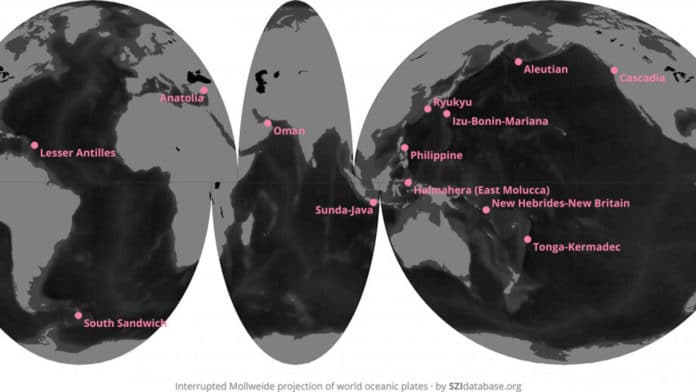Subduction zones are pivotal for the recycling of Earth’s outer layer into its interior. However, the conditions under which new subduction zones initiate are enigmatic.
Now a new study details where and how subduction starts on Earth. The study by the international team of scientists compiled 100 million years of existing evidence for Subduction Zone Initiation (SZI). One of the biggest things this showed was that subduction breeds subduction. Truly spontaneous subduction in ‘pristine’ places is practically unheard of.
The study- led by the Centre for Earth Evolution and Dynamics at the University of Olso- resulted in a new database on Subduction Zone Initiation, which is now also open for community input.
Co-author Dr. Caroline Eakin from The Australian National University (ANU) said, “By looking at multiple events, we found SZI clustering around two time periods: six to 16 million years ago and 40 to 55 million years ago.”
“Going forward, ANU researchers will also be deploying ocean-bottom seismometers around Macquarie Island, a location chosen due to its potential for future Subduction Zone Initiation.”
Journal Reference:
- Crameri, F., Magni, V., Domeier, M. et al. A transdisciplinary and community-driven database to unravel subduction zone initiation. Nat Commun 11, 3750 (2020). DOI: 10.1038/s41467-020-17522-9
